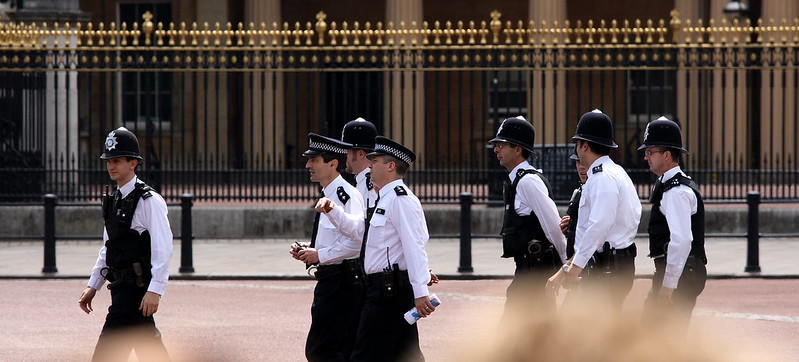The Regulation of Investigatory Powers Act (RIPA, 2000) outlines an array of covert tactical options available to UK law enforcement agencies; options that provide investigators with the authority to seek out and gather intelligence and evidence. The Act provides a statutory apparatus through which the somewhat grey notion of covert operations may be navigated. However, since its implementation over 20 years ago, there has been a sharp and linear decline in the use of the Act, with investigating authorities seemingly less willing to deploy covert tactics against organised criminals.
The Changing Landscape
Investigative action within the UK has begun a paradigm shift toward technical interference and away from human intelligence collection. Previously common methodologies such as the use of Covert Human Intelligence Sources (CHIS) and Undercover Operatives (UC’s) are waning. The 21st century has ushered in a rapid period of technical advancement on the back of unrelenting globalisation, and in turn, the public have moved more and more of their lives into the virtual domain. Organised Crime Groups (OCGs) have sought to capitalise on this new landscape by migrating to inhabit the digital space. This explosion of criminal activity within the ‘virtual world’, has been accompanied by a torrent of reporting highlighting the uncontrollable and under-policed mediums of social media, internet and dark web, giving authorities an entirely new area of operations to wrestle with.
At face value, the movement of crime away from the physical realm and into cyberspace goes some way to accounting for the downturn in RIPA authorised tactical applications. However, it is important to consider that crime is not moving into the virtual sphere and exiting the physical one, but rather inhabiting both simultaneously. This additional criminal realm (i.e., cyberspace) is placing greater demand on investigators, furthering the need for more tactical operations to combat greater caseloads.
Tactics for the 21st Century
The change in criminal modus operandi has catalysed a shift toward technical collection methods within law enforcement agencies, whilst more traditional human collection tactics are increasingly viewed as outdated and high risk. For investigators to continue to pursue such ‘conventional’ deployments, there must be an appreciable attitude to risk, as well as support from the senior ranks.
If investigators are presented with emerging trends in crime within the cyber sphere, coupled with an increased reluctance to own risk, and pressure to ‘move with the times’, there will be an inevitable bias toward the use of cost-effective technical collection tactics, over expensive and high-risk human collections – irrespective of their potential valuable.
Attitude to Risk: The Elephant
If we accept the notion that crime continues to rise despite a notable decrease in the usage of the Act, then is the issue a matter of zeitgeist? Specifically, are public authorities feeling the strain of maintaining the stance of ‘policing by consent’ when civil rights groups are weaponising public opinion against them? This has become apparent with Liberty’s legal challenge(s) against the so-called ‘Snooper’s Charter’, which reached media fever pitch during the passing of the Investigatory Powers Act 2016. Fears of widespread invasions of privacy were pedalled by opponents to the Bill and Parliament were forced to take defensive positions to justify the statutes being legislated.
In the wake of this momentum of policing distrust, led by activist groups, the media exacerbated matters by depicting scandals of botched law enforcement operations and undercover officers gone rogue – tipping public opinion toward policing reform and greater transparency. This provided an antithetical position to the covert methods permitted by the Act, making executive scrutiny of RIPA applications greater still, with these executives pedalling trust and inclusion over a focus toward dismantling organised crime.
Trial by Media and the Public Image
The Independent Office for Police Conduct (IOPC) updated their ‘position statement’ in 2018, clarifying that they sought not to discourage risk taking within police forces. The IOPC stated that it had ‘concerns that the police have become a risk averse and inefficient service’ and articulated their analysis so as to show support for, rather than suspicion and discouragement of, covert methodological approaches to dismantling organised crime.
It is crucial to understand that despite the oversight bodies voicing their support for Law Enforcement Agencies (LEA) to take on the onus of risk, policing in the UK has been reeling from several damaging public inquiries. These inquiries, ranging from crimes committed by Mi5-handled informants to undercover officers’ behaviour, have severely undermined public trust in UK policing.
It must be noted that oversight commissions are not the only form of civil regulation that public authorities are subject to. The more organic, and potentially far more damaging form of scrutiny is that of public opinion, writ large by the free press. When a public authority is dealt criticism by a commission, it can often provide press statements coupled with policy reviews and the implementation of strategic objectives for the short and medium term. If the same authority is subjected to scathing dissent by the media, there is a very real danger of public disorder, such as the London Riots in 2011. This collective memory is never far from present when police leaders are considering their own attitudes to risk.
In order to increase public confidence in covert operations, UK LEA must find a means to harness the influence of the media to disseminate the relevant positive messaging that accompanies their efforts in the main. Of all Investigatory Powers Tribunal hearings (which are independent of LEA) between 2017-2021, less than 4% were found to constitute failings within the covert investigations. How do senior officers underpin the effectiveness and rigour of covert tactics in preventing the 32 terrorist attacks, when the press naturally gravitate to the two attacks that were not foiled? This is to some degree, the policing unicorn.
Conclusion
The difficulty lies not so much in pinpointing the exact cause of the decline in covert tactics but stemming and reversing this trend. This must start with UK LEA being more inclined to exploit their covert capabilities and leverage their tactical advantages. This will only happen if the willingness to embrace risks, rather than take them, is renewed. The College of Policing has recently channelled this view into a call to action: ‘As professional risk takers, members of the police service must be willing to take risks rather than avoid them’. However, it is yet to be seen as to whether this call has been heeded by investigators.
The other key aspect required to change the tide of LEA’s reluctance to exploit the Act, is that of public confidence. This is arguably the most difficult variable for any public authority to properly manage, as by virtue of the tenet of UK policing (that of ‘policing by consent’), transparency and trust often suffer through the use of covert methodologies, which are based on secrecy, power and deception. This apparent paradox is more than just a conundrum, it is likely to prove a key factor in the struggle to regain public confidence in policing. If, however UK Policing Ltd. can navigate this dilemma, it just may provide the necessary impetus to fully leverage one of the most powerful legislative allies in the fight against organised crime.
Rob Le Core is a Detective Inspector at the North West Regional Organised Crime Unit and former Royal Marines Commando. He holds a 1st class MSc in Covert Investigation and Specialist Intelligence from Liverpool John Moore’s University and is currently working towards a PhD in Cognitive Science at The University of Northampton, focussing on risk perception within Serious and Organised Crime.
Main image Credit: The Police by Cody via Flickr.
The views expressed in this article are those of the author and do not necessarily reflect the views of RUSI, ECPR, Focused Conservation or any other institution.



